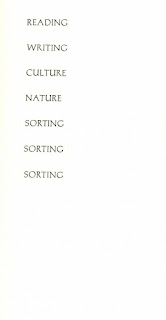OLD JUDGE : PARIS (In Original 1976 Production)
When considering the best liked cities on earth, Paris looms large among them. Paris is one of the world's greatest tourist attractions. And not without reason, for Paris has much to offer. Paris does not have a multiplicity of skyscrapers like New York, but it has much beauty and elegance. And Paris has an illustrious background of history.
In Paris there is a number of young men who are very beautiful, very charming, and very lovable. Paris is called "the city of lights". But these young men who are very beautiful, very charming, and very lovable, prefer the darkness for their social activities.
One of the most beautiful streets of Paris is called Les Champs-Elysées, which means the Elysian Fields. It is very broad, bordered with trees, and very pleasant to look at.
One of the most beautiful things of Paris is a lady. She is not too broad, bordered with smiles, and very, very, very pleasant to look at. When a gentleman contemplates a lady of Paris, the gentleman is apt to exclaim : "oo la la", for the ladies of Paris are very charming. And the ladies of Paris are dedicated to the classic declaration, expressed in the words : "L'amour, toujours l'amour !"
A Russian man once said that the eyes of a Paris lady are as intoxicating as good wine, and that her burning kisses are capable of melting the gold in a man's teeth.
In Germany, in Italy, in Congo, in China, and in the United states, there are men who say : "If you've never been kissed by a lady of Paris, you've never been kissed at all."
|
OLD JUDGE : ALL MEN ARE EQUAL ( Alternate Speech, From 1984 Revival )
"In this court, all men are equal." You have heard those words many times before. "All men are equal." But what about all women ? Are women the equal of men ? There are those who tell us that they are.
Last week, an auspicious meeting of women was held in Kalamazoo. The meeting was addressed by a very prominent lady who is noted for her modesty. She is so modest that she blindfolds herself when taking a bath. Modesty runs in her family. She has a nephew who is just ten years of age. Sometimes, the nephew says "I'm going to the forbidden name store." The little fellow is too modest to say "I'm going to the A & P." Well, here is what that modest lady said to the gathering of women in Kalamazoo :
"My sisters : The time has come when we must stand up and declare ourselves. For too long have we been trodden under the feet of men. For too long have we been treated as second-class citizens by men who say that we are only good for cooking their meals, mending their socks, and raising their babies.
"You have a boyfriend, and he calls you his queen. Then, when he marries you, he crowns you. These are the kind of men who, when they become romantic or, I should say, when they are in a certain mood, they want to kiss you and kiss you and kiss you again.
"My sisters, I say to you : Put your faces against it, and, if the man takes from you without your permission, look him squarely in the face, roll your eyes at him, and say to him ‘How dare you, you male chauvinist pig ! You put that kiss right back where you got it from.’
"My sisters, we are in bondage, and we need to be liberated. Liberation is our cry. Just yesterday, I talked with a woman who is the mother of fifteen children. She said ‘Yes, I want to be liberated from the bedroom.’
"And so, my sisters, the time has come when we must let this male chauvinist understand that the hand that changes the diapers is the hand that shall rule the world.
"And now, my sisters, let us stand and sing our national song. For the benefit of you who have not yet memorized the words, here they are :
The woman's day is drawing near, it's written in the stars
The fall of men is very near, proclaim it from your cars.
Sisters, rise ! You flags unfurl ! Don't be a little girl.
Say "Down with men, their power must end : Women shall rule the world !"
|















